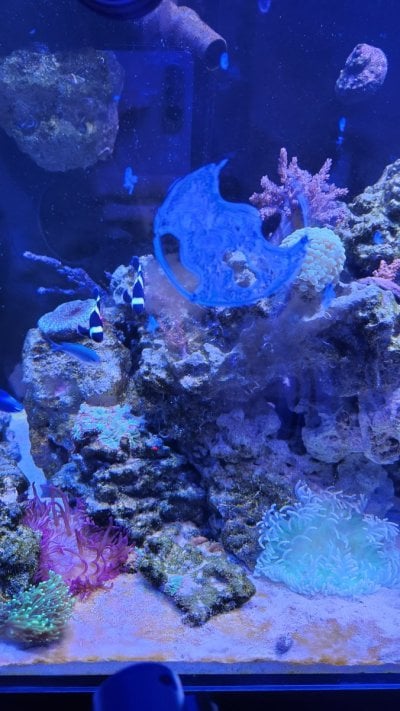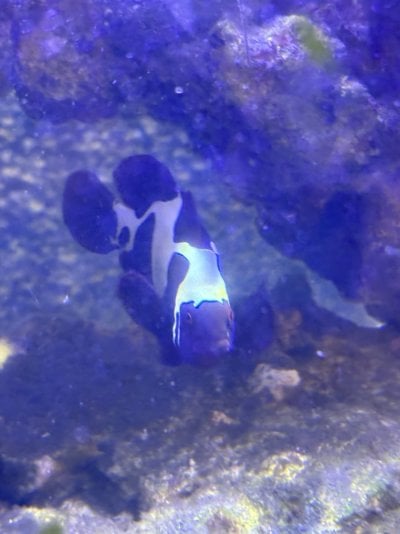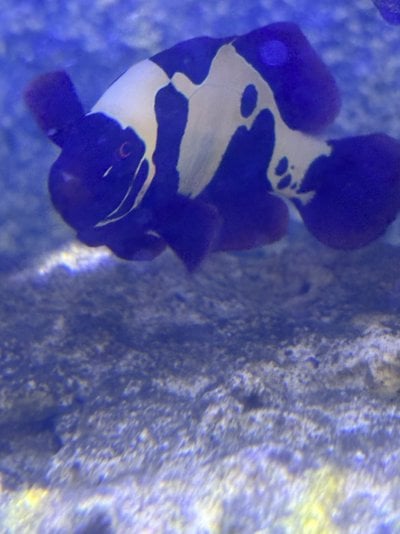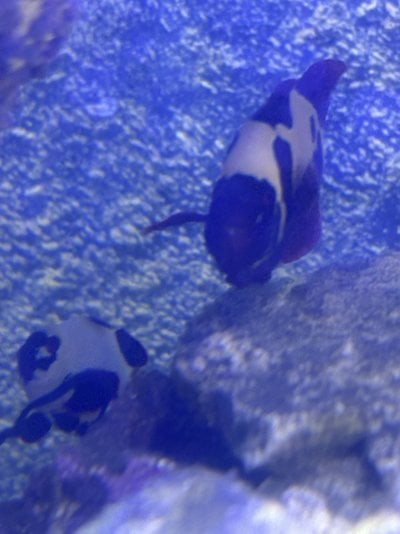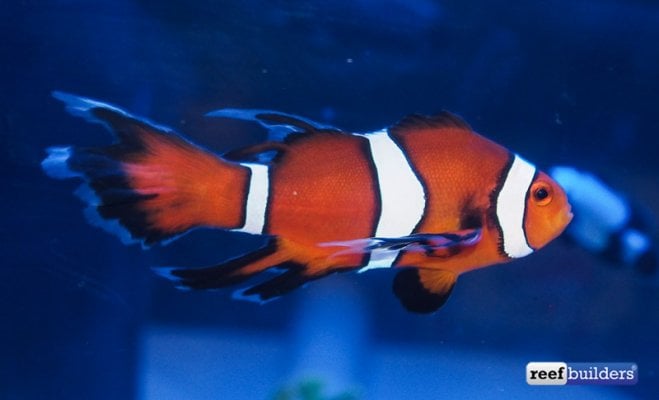Just clowning around! Do you have a favorite species of clownfish?
A clownfish is a clownfish, right? While many people have an image of the seemingly ubiquitous clownfish, there are many variations. Not only are there different patterns of clownfish there are also many different species. In fact, right now there are about thirty different species of clownfish. Additionally, there are many patterns of clownfish such as some of my favorites: the bullet-hole Oscellaris and the lightning Maroon. Some of the species are more well know like the oscellaris, percula, maroon, clarkia, skunk, and tomato, however there are also lesser-known clownfish species that are available in the hobby such as the allardi, mcculochi, and omanensis. Do you have a favorite species of clownfish?

Photo by @Reef Pro; Amphiprion omanensis
This QOTD is sponsored by: www.tidalgardens.com

“The goal of Tidal Gardens is to offer the highest quality corals to those seeking a piece of that world without destroying it. We hope to instill a deep appreciation for the natural reefs and help develop a self-sustaining hobby that no longer requires the collection of fish and corals.”
A clownfish is a clownfish, right? While many people have an image of the seemingly ubiquitous clownfish, there are many variations. Not only are there different patterns of clownfish there are also many different species. In fact, right now there are about thirty different species of clownfish. Additionally, there are many patterns of clownfish such as some of my favorites: the bullet-hole Oscellaris and the lightning Maroon. Some of the species are more well know like the oscellaris, percula, maroon, clarkia, skunk, and tomato, however there are also lesser-known clownfish species that are available in the hobby such as the allardi, mcculochi, and omanensis. Do you have a favorite species of clownfish?
Photo by @Reef Pro; Amphiprion omanensis
This QOTD is sponsored by: www.tidalgardens.com
“The goal of Tidal Gardens is to offer the highest quality corals to those seeking a piece of that world without destroying it. We hope to instill a deep appreciation for the natural reefs and help develop a self-sustaining hobby that no longer requires the collection of fish and corals.”







